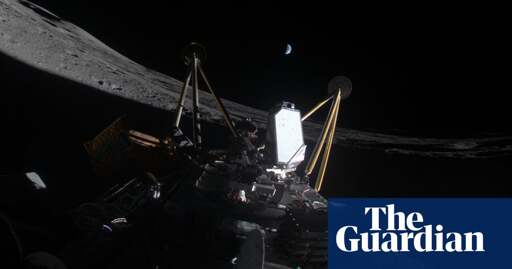Even if it landed correctly, why would they plan a solar powered mission to the moon when our next lunar eclipse is in like 5 days?
Weight == $$$
Wait, I thought Eggs == $$$
🤔
Yes, and eggs have weight.
So they couldn’t use eggs as a power supply.
Therefore, the only alternative was to rely entirely on solar.
Meanwhile, they now have nuclear diamond batteries. Hell, the Voyagers have been running on aging plutonium for nearly 50 years.
You’d figure a modern expensive system like that might have a modern secondary power source, at least enough juice to run for two weeks FFS…
Because for the amount of power needed they would have to halve its payload capacity if they used RTGs
Eclipses end, though. Being tipped over does not.
Quite true. Strangely, here on Earth they have smart robots that you can literally kick over sideways, and their sensors and hydraulics and stuff kick right in and set them back upright.
If you’re gonna dump hundreds of millions of dollars into such a project, why not utilize all known, available, and proven technology?
That’s just private-sector efficiency taking control.
How would a secondary power source save it from being tipped over? That’s a mission ending failure no matter how many redundant power sources you have.
Being tipped over doesn’t inherently stop all of its equipment from working, I’m sure at least some of the sensors could otherwise still work, if they had power.
Even if only 10% of the sensors and equipment could still work, 10% would still be better than 0%.
True, but communication could still be a problem.
Generally this kind of probe will have a highly directional antenna that has pretty strict limits on it’s aim. We would have to be very lucky for the antenna to not get damaged during the fall and end up in a position where it can still establish a connection. Even if all the science is fine, it’s as good as useless if it can’t communicate any results or accept commands.
Ah, but it did send data back before the battery ran down, at least enough data to confirm it fell over when it landed.
It’s all about weight when going to space. It’s one of the basic parts of rocket science. If you want to send 1 pound into space, you need to add gas to cover that weight, and the weight of the gas you add. Eventually you reach a point where the combined weight of the gas is more than the thrust it provides and you can’t add more. Solar is light, a few hours of no power isn’t a big deal over months or years of operation time, if you are confident things will come back on when there’s light again.
Chief O’Brien would be so disappointed. he wouldn’t like to be caught without a secondary backup in a crunch.




